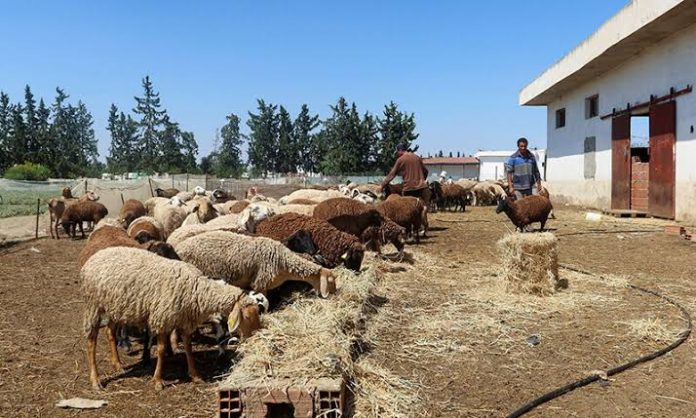Facebook Twitter (X) Instagram Somali Magazine - People's Magazine
In a significant move to safeguard its agricultural sector, China has imposed a ban on the import of livestock products from Tanzania, Somalia, and several other countries across Africa, Asia, and Europe. The decision, announced on Thursday, January 30, 2025, comes in response to outbreaks of livestock diseases in these regions. The ban specifically targets sheep, goats, poultry, and even-toed ungulates, which include animals like cattle and deer.
The Chinese government cited concerns over the potential spread of contagious animal diseases, such as foot-and-mouth disease and avian influenza, as the primary reason for the prohibition. These diseases pose a significant threat to China’s domestic livestock industry, which is already under pressure to meet the demands of its vast population. The ban is expected to remain in place until the affected countries can demonstrate effective control over the outbreaks and meet China’s stringent import health standards.
Tanzania and Somalia, both of which rely heavily on livestock exports as a key component of their economies, are likely to feel the immediate impact of this decision. Livestock farming is a critical source of income for millions of people in these nations, and the ban could exacerbate economic challenges in regions already grappling with poverty and instability.
China’s move has also raised concerns among international trade experts, who warn that such restrictions could disrupt global supply chains and further strain diplomatic relations. However, Chinese officials have emphasized that the decision is based solely on scientific and epidemiological evidence, with the aim of protecting public health and food security.
The announcement has sparked mixed reactions globally. While some countries have expressed understanding of China’s precautionary measures, others have criticized the ban as overly restrictive. In response, the Tanzanian and Somali governments have pledged to work closely with international organizations, such as the World Organisation for Animal Health (OIE), to address the outbreaks and expedite the lifting of the ban.
Meanwhile, China’s domestic livestock industry is expected to benefit from the reduced competition in the market. The country has been investing heavily in modernizing its agricultural sector, with a focus on increasing self-sufficiency in food production. This ban aligns with China’s broader strategy of minimizing reliance on foreign imports and strengthening its food security.
As the situation unfolds, stakeholders in the global livestock trade are closely monitoring developments. The ban underscores the delicate balance between protecting public health and maintaining international trade relations. For Tanzania and Somalia, the immediate priority will be to contain the disease outbreaks and restore confidence in their livestock exports.
In the meantime, consumers in China are unlikely to experience significant disruptions, as the country has diversified its sources of meat and poultry imports. However, the long-term implications of this ban remain uncertain, particularly for countries heavily dependent on livestock exports.
This decision by China highlights the interconnected nature of global trade and the importance of robust disease surveillance and control mechanisms. As the world continues to grapple with emerging health threats, such measures are likely to become increasingly common, underscoring the need for international cooperation and transparency.

